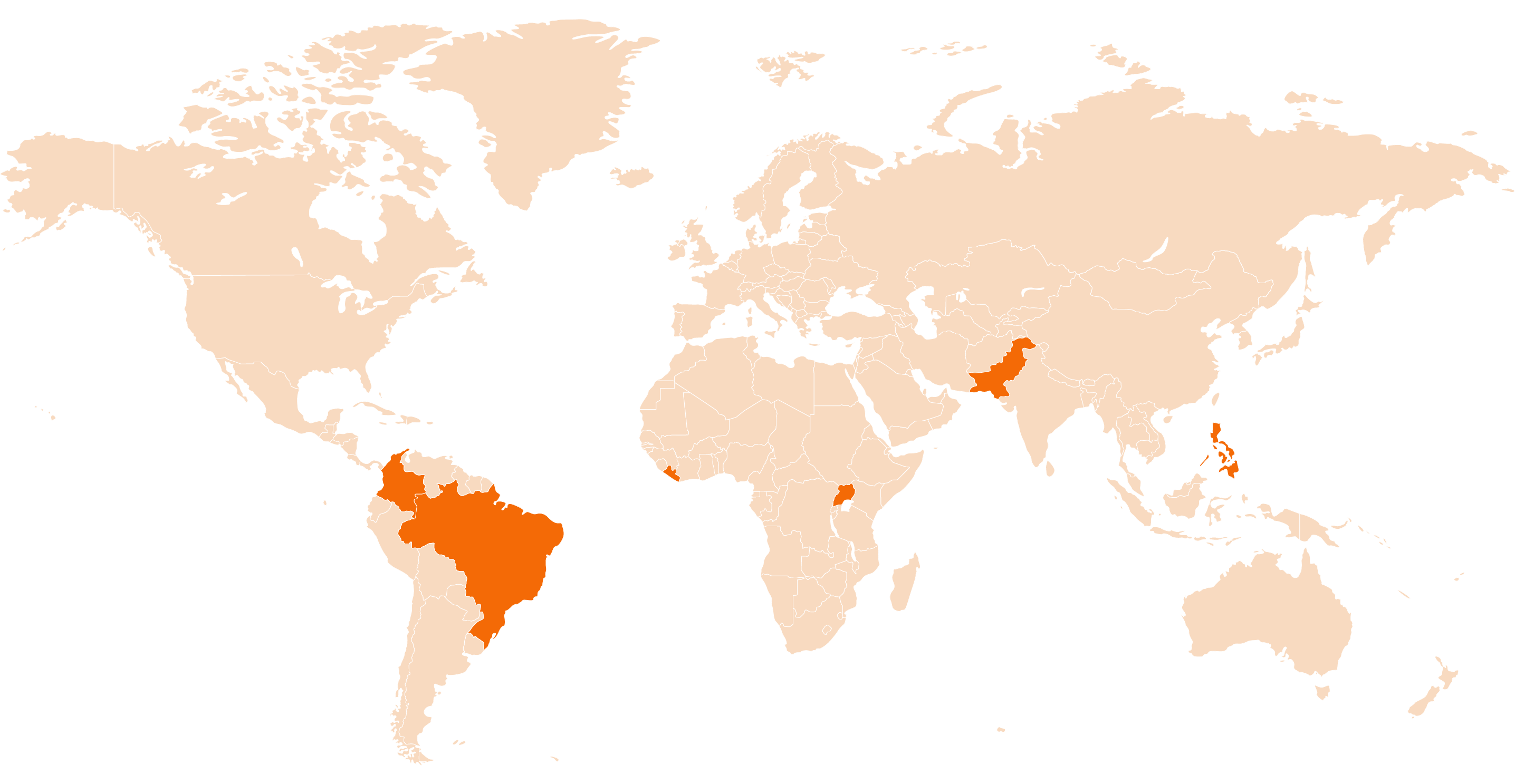Round IV:
Community Policing
Overview
Can community policing be used effectively by new and reconstituted police forces in contexts in which the legitimacy of the state is challenged?

The Community Policing Metaketa round seeks to answer this question by coordinating six research projects in diverse contexts that assess whether an informal model of police-community interaction changes the level of trust in the police, levels of observed cooperation, and rates of crime.
This Metaketa round was launched in Spring 2016 and will run until Spring 2020. This round awarded five projects—one each in Brazil, Colombia, Liberia, Pakistan, and Uganda—ranging in funding from $150,000 to $250,000 provided by the UK’s Department for International Development. A sixth project—in the Philippines—was awarded funding from an alternative source. All of the projects use common interventions to implement a community policing program consisting of two components: (1) a community engagement program to solicit information on community problems from citizens and transmit information about police programs to citizens; and (2) a problem- oriented policing program, in which police address problems identified through community engagement programs directly with small, dedicated budgets and/or indirectly with the assistance of other public and private agencies. In addition, each project will involve at least one complementary intervention.
Metaketa II Steering Committee:
Graeme Blair (Chair, UCLA)
Fotini Christia (MIT)
Jeremy Weinstein (Stanford)